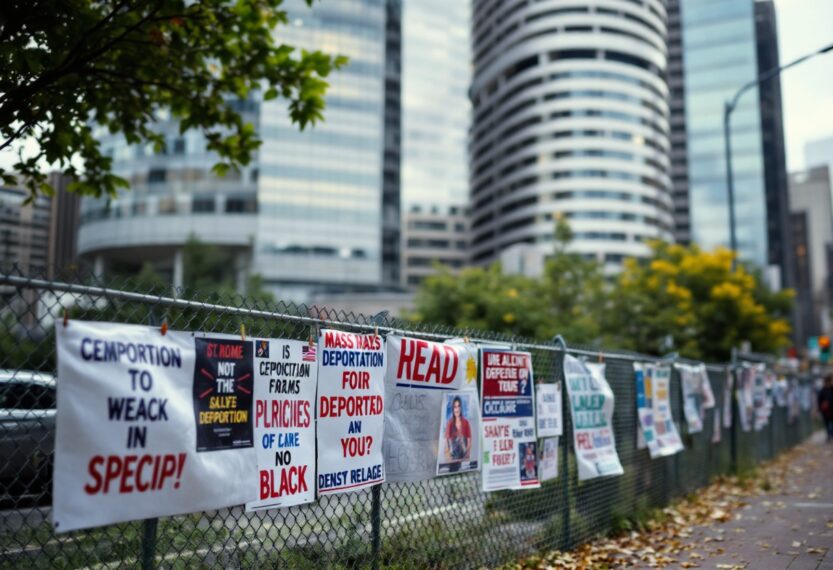The recent announcement by President-elect Donald Trump regarding a mass deportation strategy has ignited a fervent debate across the United States. As the administration gears up for what has been described as the “largest deportation operation this country’s ever seen,” the implications of such a policy are profound and multifaceted. The focus on targeting individuals deemed a “threat to society” raises questions about the ethical and social ramifications of these actions.
Understanding the deportation strategy
Trump’s administration plans to prioritize deportations based on various criteria, including criminal associations and asylum denials. This approach, articulated by Tom Homan, the new border czar, suggests a systematic targeting of individuals from specific countries of concern, such as China and Nicaragua. The involvement of U.S. intelligence agencies in identifying these individuals adds another layer of complexity to the operation. However, the statement that “no one’s off the table” indicates that even long-term residents and families may face deportation, stirring fears among immigrant communities.
Public opinion and political resistance
Public sentiment regarding mass deportation is divided along partisan lines. A recent Scripps News/Ipsos poll revealed that while 52% of Americans support the mass deportation of undocumented individuals, this support diminishes significantly when it comes to separating families. Only 38% of respondents expressed approval for such measures, highlighting a critical disconnect between broad support for deportation and the specific implications of family separation. This discrepancy suggests that while there may be a general inclination towards stricter immigration policies, the human cost of such actions is a significant concern for many.
The role of local governments and community responses
In response to the anticipated mass deportations, several local governments, particularly in blue states, have pledged to resist these policies. Cities like Boston and Los Angeles have enacted measures to prevent local law enforcement from acting solely on immigration status. This resistance underscores a growing tension between federal immigration policies and local governance. Denver’s Mayor Mike Johnston’s willingness to face jail time in opposition to these deportation strategies exemplifies the fierce commitment among some leaders to protect their communities from federal overreach.
As the situation unfolds, the potential for conflict between local authorities and federal directives looms large. The implications of mass deportation extend beyond the immediate impact on individuals; they resonate through communities, affecting social cohesion and public safety. The discourse surrounding these policies will undoubtedly shape the future of immigration in America, necessitating a careful examination of both the legal and moral dimensions involved.

